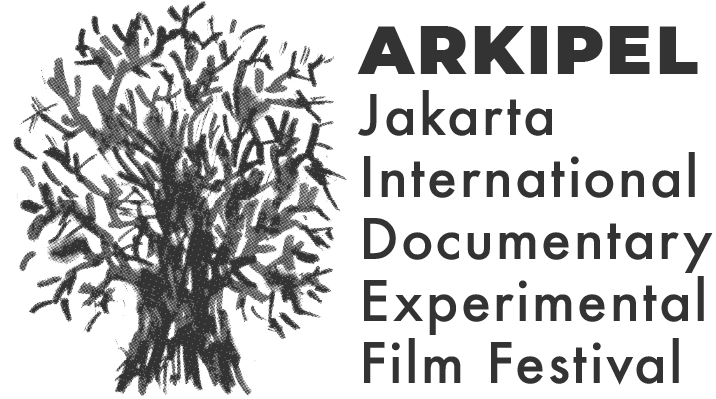Collective Redefinition in The Digital Era
Redefinisi Komunitas di Era Digital
Moderator: Dini Adanurani
Panelists: Gorivana Ageza, Taufiqurrahman, Rosalia Engchuan
Monday, August 20, 2019 | 11:00 | GoetheHaus
Abstrak / Abstract
Ruang aktivisme filem semacam komunitas tumbuh berlantasan di beragam lokasi. Tanjakan kuantitas komunitas ini menggaungkan peluang adanya pola-pola baru dalam pertukaran wacana sinema kita. Untuk menguatkan daya tawarnya, komunitas perlu secara konsisten mengembangkan pengetahuannya tentang bahasa visual, teori, dan sejarah filem yang justru kerap terabaikan di sejumlah forum pertemuan komunitas. Topiknya melompat, katakanlah, lebih berfokus pada manajemen produksi profesional atau manajemen promosi dan publikasi satu arah: komunitas filem terancam bergeser posisinya sebagai hanya ruang pra-industri.
Dalam penentuan bahasa sinema kita, atau bahasa sinema secara lebih global, aktivisme komunitas sesungguhnya memiliki potensi kuat dan peran yang teramat penting. Ragam inisiatif mulai dari aksi produksi, distribusi, eksebisi, hingga edukasi filem yang digagas sejumlah komunitas telah mengambil peran strategis. Strategis dalam bingkaian yang memperlihatkan bahwa aksi berkomunitas para pegiatnya tidak terlepas dari konteks posisinya dalam masyarakat, berlandaskan hasrat berbagi dan berorientasi pendidikan. Dengan demikian mereka semakin memantapkan demarkasinya dari kultur industri. Mengkritisi kultur dominan, komunitas bergerak dengan “cara tersendiri” sesuai kebutuhan dan kemampuan anggotanya. Kemudian melalui aktivitasnya itu komunitas menjadi fasilitator dalam upaya mempertemukan kepentingan publik yang lebih luas, menggunakan kultur bersinema. Konsistensi dalam aksi-aksi berkomunitas yang demikian membuat kita dapat membayangkan masa depan sinema kita.
Film activism spaces such as communities grow in various locations. The rise in the quantity of this community creates opportunities for new patterns in the exchange of our cinema discourse. To strengthen its bargaining ability, the community needs to consistently expand its knowledge about visual language, theory, and film history, which often overlooked in some community meeting forums. The topic jumps, say, focused on professional production management or one-way promotion and publication management: the film community is in danger of shifting its position as just a pre-industrial space.
In determining our cinema language, or global cinema language, community activism has important role as well as a strong potential. Various initiatives ranging from production, distribution, exhibition, to film education initiated by a number of communities have taken a strategic role. The strategic which shows that the community activists’ actions are inseparable from the context of its position in society, based on the desire to share and oriented towards education. Thus, they further strengthen their demarcation from industrial culture. Criticizing the dominant culture, the community moves in “their own way” according to the needs and abilities of its members. Through its activities, the community becomes a facilitator in bringing public interests together, using the cinema culture. Consistency in such community actions allows us to imagine the future of our cinema.
About the Panelist

Rosalia Engchuan seorang antropologi sosial dan sutradara. Ia bekerja sama dengan pekerja di bidang audio visual di Asia Tenggara. Ia telah menyeselesaikan gelar MA dalam studi Asia Selatan dan Asia Tenggara modern di Universitas Humboldt, dan BA dalam studi Managemen dari HTWG, Konstznz.
Rosalia Engchuan is a Social Anthropologist and Director. She works with audio visual workers in Southeast Asia. She has completed an MA in modern South and Southeast Asian studies at Humboldt University, and a BA in Management studies from HTWG, Konstznz.

Taufiqurrahman (Palu, 25 September 1994) bekerja sebagai desainer grafis. Ia adalah anggota Forum Sudutpandang, Palu, mengembangkan kolektif yaitu Serrupa. Sejak 2018, ia telah mempelajari exeperimental visual di Milisifilem Collective. Ia lulus dari Ilmu Komunikasi, Universitas Tadulako, pada 2017.
Taufiqurrahman (Palu, 25 September 1994) works as a graphic designer. He is a member of Forum Sudutpandang, Palu, developing collective namely Serrupa. Since 2018, he has been studying exeperimental visual in the Milisifilem Collective. He graduated from Communication Studies, Tadulako University, in 2017.

Gorivana Ageza memulai perkenalannya dengan film saat baru menjadi mahasiswa di tahun 2010. Karena di Fakultas Filsafat Unpar terdapat ruang menonton dan diskusi film yang dinamai Sinesofia. Sejak tahun 2012, ia mulai aktif berkegiatan di komunitas film, di dalam maupun di luar kampus. Sejak tahun 2015 bersama sejumlah teman mendirikan Bahasinema, komunitas yang berfokus pada eksibisi dan kajian film. Tahun ini menjadi kurator di Selasar Weekend Cinema 2019 (program kerja sama Selasar Sunaryo Art Space, Korean Cultural Center, dan Bahasinema), mulai bertugas sebagai koordinator divisi Litbang Komisi Film Bdg, serta bergabung dengan JAFF. Echa baru saja menyelesaikan pendidikan pascasarjana di prodi Kajian Budaya, Unpad. Saat ini memulai petualangan baru di magister Filsafat Budaya & Religi, Unpar.
Gorivana Ageza met film when she was just a student in 2010. At the Faculty of Philosophy Universitas Katolik Parahyangan, there is a film collective named Sinesofia. Since 2012, she has been active in the film collective, on and off-campus. Since 2015, with a number of friends, she formed Bahasinema, a community focused on exhibition and film studies. This year she became a curator at the 2019 Selasar Weekend Cinema (a collaborative project between Selasar Sunaryo Art Space, Korean Cultural Center, and Bahasinema), and also started as the coordinator of the R&D division of the Komisi Film Bandung and joined the JAFF. Echa, her nickname, has just completed her postgraduate education at the Cultural Studies study program, Universitas Padjajaran. Now she’s starting her Masters in Philosophy of Culture & Religion, Universitas Katolik Parahyangan.
About the Moderator

Dini Adanurani (1998) adalah seorang mahasiswa jurusan Filsafat, Fakultas Ilmu Budaya, Universitas Indonesia. Di kampusnya, ia terlibat aktif sebagai content writer di UKM Sinematografi UI. Sebagai penulis, topik-topik yang menarik perhatiannya adalah topik seputar filem, buku, kehidupan dan budaya populer. Selain menulis di Sinematografi UI, ia juga menulis untuk Deadpool UI, sebuah komunitas kajian budaya populer dan narasi alternatif mahasiswa Universitas Indonesia, dan jesuismager.wordpress.com. Ia juga seorang pembuat filem. Sebagai sutradara, filemnya antara lain Noda (2018), Pintu (2016), dan Tiada (2016); ia pernah memproduseri filem Underneath the Flood (2015) bersama Cinematography Club SMA Santa Theresia dan menjadi direktur artistik untuk filem Angsa Origami (2017). Di UI Film Festival 2018 yang diselenggarakan Sinematografi UI, Dini berperan sebagai wakil kepala program pemutaran filem.
Dini Adanurani (1998) is a student majoring in Philosophy, Faculty of Cultural Studies, University of Indonesia. At her campus, she is involved as a content writer at UKM Cinematography UI. As a writer, topics that interest her are the topics around films, books, life and popular culture. Other than writing on UI Cinematography, she also writes for Deadpool UI, a community of popular cultural studies and alternative narratives of University of Indonesia students, and jesuismager.wordpress.com. She is also a filmmaker. As a director, his films include Noda (2018), Pintu (2016), and Tiada(2016); she once produced the film Underneath the Flood (2015) with Cinematography Club Santa Theresia High School and became an artistic director for the film Angsa Origami (2017). At UI Film Festival 2018 organized by Cinematography UI, Dini served as the deputy head of the film screening program.

